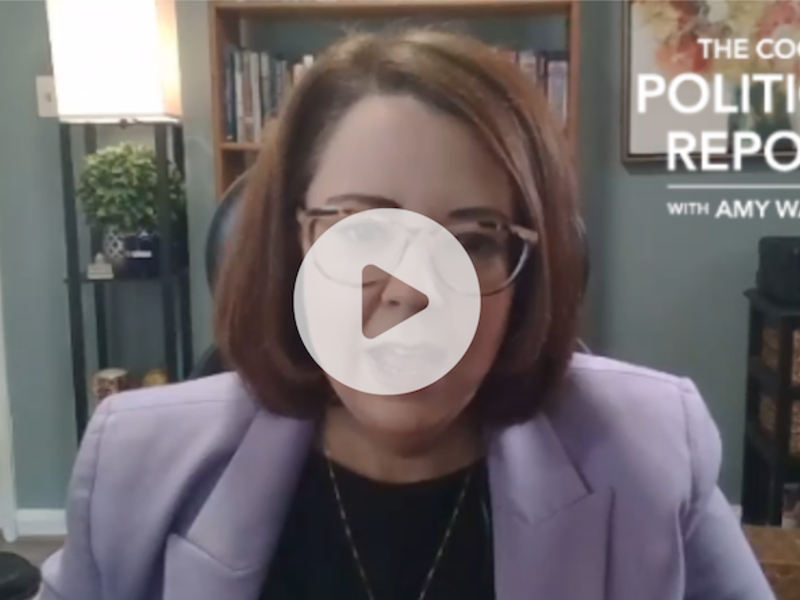
So much of what is driving the 2020 Democratic primary is the memory of 2016. Democrats are desperate not to make the same mistakes. In Iowa, that meant trying to make a messy and opaque process that many supporters of Sanders argued gave Clinton an unearned win, more transparent.
The old caucus system lacked transparency, only "delegate equivalents" were given out, not the raw vote totals from each caucus site. This year the Iowa Democratic Party planned to report the popular vote winner, showing the math on how each precinct went from clusters of voters in a high school gym to delegates that determine the 'winner.'
With a new system, run by volunteers, using new technology — what could possibly go wrong? This article, written yesterday by The Atlantic's Elaine Godfrey, accurately predicted the Iowa Democratic Caucuses' problems and why. Asking a small state party and an army of local volunteers to serve these high profile roles was a risk. And, it flopped.
The dean of Iowa political journalists, longtime Des Moines Register reporter David Yepsen, also predicted the chaos last spring when he told us that Democrats' new bells and whistles would make for results reporting nightmare. After watching caucuses spanning five decades, he was even more morose on Monday night: "RIP caucuses. And after the GOP fiasco of 2012, Iowa probably shouldn't even try."
As our friends at NBC's First Read put it, "The Iowa caucuses have two essential jobs in the nominating process since it goes first: 1) to winnow the field, and 2) to help determine the presidential frontrunners — and that's plural. Last night's reporting disaster resulted in a failure on both fronts."
Now, instead of serving as a slingshot to New Hampshire, Iowa is just an asterisk and an expensive one at that for the parties, campaign and media who traveled to Iowa to cover it.
The messy Iowa aftermath does, however, appear to help to blunt a bad news cycle for other candidates, specifically Joe Biden. While we don't have official results, from what we know at this point, it's clear he's not finishing in the top two (or maybe even top three). In a way, the fact that neither Biden nor Klobuchar were in contention to win (based on the early evidence last night) freed them to seize the stage while other candidates were waiting for more evidence to "declare victory." And, while the Iowa results won't help either candidate's cause, this wasn't the worst way the night could have unfolded for them.
It's hard to overstate how unrepresentative last night's Iowa caucus electorate was of the broader Democratic primary electorate. First, caucuses (90 percent of contests will be primaries) tend to reward candidates with liberal, passionate supporters. Second, it was considerably younger than the national electorate will be (the entrance poll suggests 21 percent of caucus-goers were under 35-years-old) and close to 90 percent white — a confluence of all of Biden's weaknesses.
New Hampshire is a 'fresh' start for Biden, but he has similar challenges here to the ones he had in Iowa. Specifically, it's an overwhelmingly white state that sits next door to the home states of Elizabeth Warren and Bernie Sanders.
Based on the memos released by the Sanders and Buttigieg campaigns, there appears to be a high probability Sanders won the most caucus support on "initial preference" and would have the most straightforward case to declare victory heading into New Hampshire.
Based on what we know now, this probably wasn't a spectacular night for Warren. The Iowa caucus format — rewarding strong organization, liberal passion and party loyalty — was supposed to play to her strengths. But most of the crowd-sourced evidence suggests she lacked strength outside of the state's most college-educated hubs (Des Moines, Iowa City, Ames) and may finish third as a result.
Pete Buttigieg, who all indicators suggest had a great night in Iowa, was already moving up in New Hampshire polls and will be well-positioned for next Tuesday. It was no accident that his lengthy speech even after a night of uncertainty struck such a victorious tone, talking about generational change and movements, and sounded like it could have been given by Obama 12 years ago. The failure of Biden and Klobuchar groups to reach the 15 percent viability threshold in many precincts also likely boosted Buttigieg, who even by the Sanders campaign's admission gained the most ground on "final preference" after voters realigned.
Additionally, this is the car-wreck scenario that the Bloomberg campaign needs for a chance at making inroads on Super Tuesday and picking up actual delegates.
No one will look back and blame the Iowa caucus if Trump wins reelection in November. However, there is a lot in the results for Trump supporters to like. First, the lower-than-expected turnout (closer to 2016 than 2008) calls into question whether having so many choices is making it harder for many Democrats to make a choice. Additionally, the more muddled outcomes and close bunching we see, the higher the probability no candidate will win a majority of delegates by the convention in July, making Democrats' task of achieving party unity much more difficult.










Subscribe Today
Our subscribers have first access to individual race pages for each House, Senate and Governors race, which will include race ratings (each race is rated on a seven-point scale) and a narrative analysis pertaining to that race.